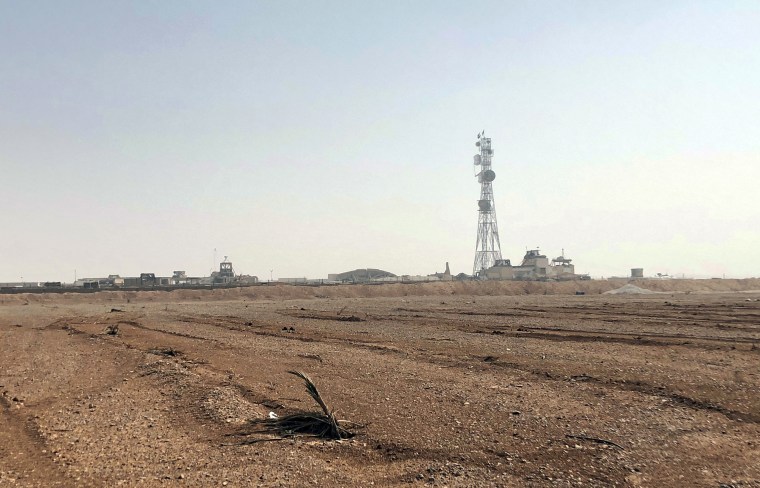Armed Russian jets have flown over a U.S. military garrison in Syria nearly every day in March, violating a 4-year-old agreement between the U.S. and Russia and risking escalation, according to the U.S. general in charge of air operations in the region.
Lt. Gen. Alexus Grynkewich, combined forces air component commander for U.S. Central Command, told NBC News on Wednesday that the most recent Russian overflight of At Tanf Garrison (ATG) happened just a few hours earlier, and that Russian jets have violated the airspace roughly 25 times so far this month, compared to zero times in February and 14 in January.
“It is a substantial increase,” he said, explaining that at this rate they are “on track to be double what it has been in the past.”
“They’re regularly flying directly overhead of our units, and I’ve defined directly overhead, as within about a mile, no more than a mile offset one side or the other, while we’ve got forces right there on the ground at ATG,” said Grynkewich. “So it’s an uncomfortable situation.”
The Russian aircraft include Su-34 jets. Some aircraft carry air-to-air weapons and others carrying air-to-ground munitions; weapons include radar-guided and heat-seeking missiles and bombs.
This disclosure comes in the wake of an incident over the Black Sea last week in which two Russian Su-27 fighter jets flew aggressively around a U.S. MQ-9 Reaper drone, dumping fuel on the drone and eventually colliding with it, forcing the U.S. to down the drone in the water.
Grynkewich said he does not think the Russians have any incentive to use weapons against the U.S. military in Syria. “But it just increases the risk of miscalculation, and given things like the MQ-9 incident in the Black Sea, it’s not the kind of behavior that I’d expect out of a professional Air Force.”
The U.S. military has used the established deconfliction phone line it shares with the Russians to protest the actions, but it has not changed Russian behavior. Instead, said Grynkewich, during the calls the Russians have told the U.S. they don’t recognize all the airspace over At Tanf (also known as Al Tanf) as U.S. airspace or that they are responding to coalition activity in the area.

In 2019 the U.S. and Russia established rules of the air over Syria in order to avoid accidental and potentially provocative encounters. Both sides agreed that direct overflight of each other’s positions on the ground, particularly with armed aircraft, was not acceptable.
“The Russians have over the last several months seemed to abandon that tenet of the protocols,” Grynkewich said. The Russians still insist the U.S. stay away from Russian ground units, he explained, and the U.S. is adhering to that. But the Russians have even flown directly over U.S. troops on the ground in southern Syria, which he called provocative.
Grynkewich said the Russians could be taking a more aggressive posture to put pressure on the U.S. military presence in Syria, which they disagree with. But he said the fact that both the U.S. and Russia are supposed to be opposed to ISIS in Syria, and with the continuing — and in some cases growing — presence of ISIS in Syria, “it seems like a very strange time to do this.”
So far the overflights have not affected U.S. military operations on the ground, but the U.S. or the international coalition against ISIS does respond to Russian aircraft, often shadowing them from afar. Grynkewich warned that if they had to respond to a Russian flight during a U.S. military operation on the ground, it could put the mission in jeopardy.
“What it is really is a distraction from the fight against ISIS,” he said. “It hasn’t affected the fight on the ground yet, but it certainly has the potential to.”
“I’m not concerned about overt hostilities, I’m concerned about a miscalculation or unprofessional or immature action by somebody.”
“Over the course of my career I have not seen this kind of disregard for agreed upon protocols and deconfliction rules,” he said. “So this is very unique, what we’re seeing right now.”
The Russian Embassy in Washington, D.C., did not immediately respond to a request for comment.
